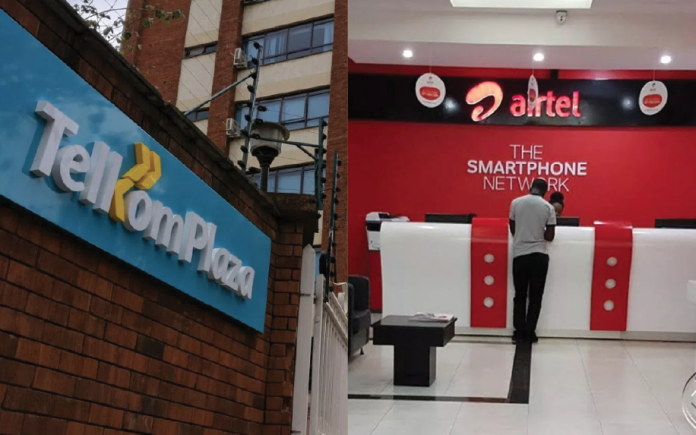The planned merger of Telkom Kenya and Airtel Networks was blocked by the National Security Advisory Committee (NSAC) due to national security concerns, according to The Weekly Review.
On October 28, 2019, the NSAC concluded that the proposed merger would jeopardize national security on the following grounds:
Telkom Kenya provides critical government communications services to the President’s Office, State Houses, the government data center, the Ministry of Interior, the General Service Unit, and the ICT Authority, such as government hotlines, the Government Common Core Network, which supports the Integrated Financial Management Information System (IFMIS), and the Department of Defence’s restricted communications networks.
Telkom Kenya’s data centres, data rooms, and base stations are responsible for critical security infrastructure such as carrier services, landing stations, undersea cables, and meet-me rooms.
As a result, the Head of Public Service, Joseph Kinyua, wrote to Ukur Yatani, Cabinet Secretary for National Treasury and Planning, informing him that the NSAC had reviewed the security implications of the proposed merger and directed that it be halted.
The deal was supposed to include key assets such as Nairobi Telephone House, Mombasa Telephone House, which houses the Meet-Me Room where undersea cable terminates in the coastal town, and another Meet-Me Room in Nyali, which houses another set of undersea cable.
The proposed merger, according to NSAC, would make government communications vulnerable to interception because the new joint venture company between Telkom and Airtel would not be under government control.
The committee emphasized that the Nyali and Mombasa Meet-Me rooms were especially important to national security because they were the only places where any cyber security action could be managed effectively.
Because the current Telkom communication architecture does not separate the Government of Kenya’s security communications infrastructure from the rest of the general network, the merger had significant security implications.
With the failure of the proposed merger of the two financially troubled mobile companies in 2019, the stage was set for the exit of Helios Investment Partners from Telkom’s shareholding in a transaction that has precipitated the company’s return to total state control and ownership.
Documents recently tabled in the National Assembly revealed that Helios Partners quietly offloaded its 60% stake in Telkom to the government for Sh6 billion in a transaction shrouded in secrecy and perfectly timed to occur in the final days of former President Uhuru Kenyatta’s tenure.
Indeed, the return of Telkom Kenya to the state is one of the few instances in which a private equity fund exits an investment by returning the asset to the original owner. In most cases, the private investor exits after sweating the asset for a much longer period of time, either through sale to other funds or, in the best-case scenario, through an initial public offering.
Helios Partners’ exit from Telkom marks the end of a chapter in the country’s history that ranks among the most grotesque privatisation fiascos. The taxpayer bore all of the losses, while the private sector reaped all of the benefits.



















